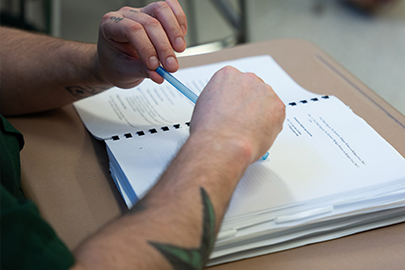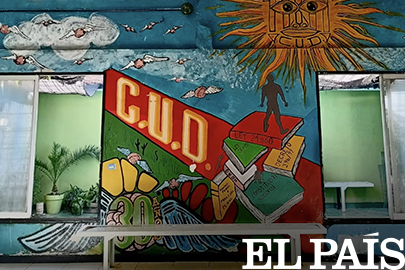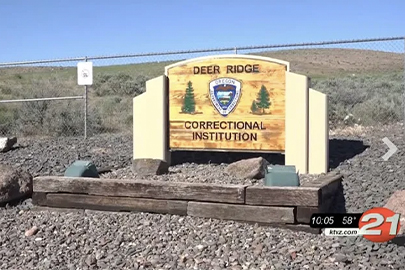FOR IMMEDIATE RESPONSE
As it deepens its commitment to creating access to higher education for incarcerated people, Rhodes College announced today that it is joining the Consortium for the Liberal Arts in Prison, an association begun by the Bard Prison Initiative (BPI) in 2009. BPI launched the Consortium in anticipation of the return of Pell Grant eligibility for incarcerated people, and to facilitate the establishment of sustainable college-in-prison programs characterized by the highest quality, ambition, and rigor. Congress ended the ban on Pell Grants for incarcerated students in 2020.
The Rhodes College Liberal Arts in Prison Program began in 2016 with a weekly Great Books Reading Group at the Women’s Therapeutic Residential Center (WTRC), a state prison in Henning where about half the women incarcerated by the state of Tennessee reside. In 2019 Rhodes introduced a for-credit Certificate of Liberal Arts at WTRC, a four-semester sequence of courses patterned on Rhodes’s Search program, a signature feature of the college’s curriculum since 1945. In May 2024, the program’s fourth student cohort will graduate in a ceremony at WTRC.
Since 2019, 75 women incarcerated at WTRC have completed over 700 Rhodes College credit hours. Twenty-seven have graduated with Certificates of Liberal Arts from Rhodes, and many of these have gone on to pursue Associate Degrees through Dyersburg State Community College. To this point, 36 faculty members from ten departments have taught in the Rhodes Liberal Arts in Prison program, and over 50 students have participated as peer tutors.
“We are proud to partner with Rhodes in this next era of its commitment to democratize access to a meaningful college education for people who have historically been excluded,” remarked BPI’s Director of National Engagement, Jessica Neptune. “We have seen all across the country the ways a college education drastically changes the trajectory of our students’ lives. A Rhodes education will be a game changer not just for individual students but for their families and communities for generations to come. We are grateful to Rhodes to help pave the way for more colleges and universities to join this work. ”
With the addition of Rhodes, the Consortium for the Liberal Arts in Prison now represents eighteen colleges and universities, including Bard, across thirteen states. All Consortium partners make a fundamental commitment to liberal arts learning that aims to transform individual lives by putting academics first. Rhodes College is the Consortium’s first institution in the South.
Other Members of the Consortium For the Liberal Arts in Prison include:
Bard Prison Initiative at Bard College (NY)
Center for Prison Education at Wesleyan University (CT)
Grinnell College Liberal Arts in Prison Program (IA)
Goucher Prison Education Partnership (MD)
Moreau College Initiative (IN)
Freedom Education Project of Puget Sound (WA)
Washington University Prison Education Project (MO)
Prison Education Initiative at Bennington College (VT/NY)
University of Vermont Liberal Arts in Prison Program (VT)
Yale Prison Education Initiative (CT)
Emerson Prison Initiative (MA)
Boston College Prison Education Program (MA)
Women’s College Partnership (IN)
Augustana Prison Education Program (IL)
Notre Dame Programs for Education in Prison (IN)
Central Oregon Community College PEP (OR)
About BPI:
The Bard Prison Initiative (BPI) was founded by undergraduates at Bard College in 1999, and began for-credit coursework starting as a pilot with 16 students at Eastern NY Correctional Facility in 2001. Since then, the program has grown annually and dramatically. Its first associate degrees were issued in 2005 and the first bachelor’s degrees in 2008. Today, the BPI college is spread across seven interconnected prisons in New York State. It enrolls over 400 students and organizes a host of extracurricular activities to replicate the breadth of college life and inquiry. Since 2001, BPI has issued more than 50,000 credits and over 760 degrees; it offers more than 160 courses per academic year and engages an extraordinary breadth of college faculty. In 2019 it was the subject of a four-part documentary series on PBS called College Behind Bars, executive produced by Ken Burns.
###



